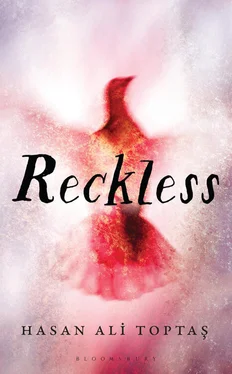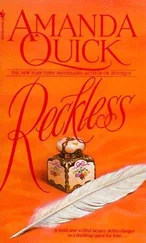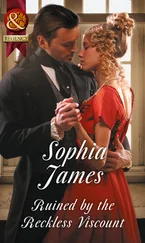No one was sure quite how many guests had come and gone, of course, but by now Hacı Veli’s single-storey mud-brick house was buzzing like a beehive.
This continued without interruption through a second day, during which Black Davut carried on perspiring and giving his clarinet quick polishes.
Late in the morning of the third day, after the musicians had played a few tunes, they led a crowd all the way to the other side of the town, to the home of some of Hacı Veli’s kinsfolk, to fetch the best man, who, like the groom, had colourful scarves pinned to his shoulders. The musicians piped both men up and down the streets of the town, slowly winding their way back to the house. Then suddenly the music stopped, for the time had come for the ritual collection. Two middle-aged men laid out an embroidered rug from Çataloba — never used, and still smelling of mothballs. The groom and his best man stepped on it timidly, and there they stood, staring at their feet. By now there were more people filing in through the gate. The women of the town made one line and the men another, going all the way up to Hacı Veli’s house with their gifts under their arms. They came inside and deposited on the rug the shirts and pots and trays and kettles that they had brought as gifts. They draped the floral prints and fine fabrics over the men’s shoulders. The banknotes they pinned to their collars, and they did the same with the gold pieces they had brought with them, dangling from red ribbons. No one stayed to see what everyone else had brought; it was expressly to avoid seeing any of it that they turned their eyes away so quickly. Before long they had so many prints and fabrics wrapped around their necks that they looked as if they were poking their heads through the rack at a clothes store.
After everyone had left their presents, and all those presents had been taken inside in the silk bags that a number of far-sighted women had left for them, Ebecik the Midwife appeared carrying a zinc pot, and as soon as the townspeople saw her, they opened up a long and winding corridor for her. Bent over double, she walked down this corridor with slow little steps, a shivering cloud bound for other realms. Reaching the groom and his best man, she crouched down. Dipping her finger into the pot, she dabbed a little henna on the tips of their shoes. And as she did so, she said, ‘May good fortune shine on you, my handsome boy, may God give you health and harmony.’ As soon as she had drawn back, the groom strode to the sherbet bowl sitting at the edge of the rug, and launched it into the air with an almighty kick that would stay in their memories. And off it flew over the heads of the crowd, glinting as the children cheered. It landed on the other side of the wall, and in no time a group of boys was kicking it down the street. And thus the collection ceremony ended. The rug was lifted up, and the instruments came back to life, filling the yard and making it tremble. The drum beat more deeply and with more lust this time. Each lithe note from the clarinets wriggled from the players’ grasp, while the trumpet sent cloud after cloud of golden sound wafting across the town. And all along the way, the snare drum beat out a cheerful rhythm as it swayed this way and that.
In the late afternoon, the town imam tapped his finger three times against the microphone, as he always did before the call to prayer, and the music stopped. And in the courtyard, even the aroma of food and grass wafted through the air more slowly, the noise died down to some degree, and everyone waited for the call to prayer to finish. When the imam turned off the microphone with that strange sizzle and pop, the musicians struck up again, as a teeming crowd of men and women followed a packed and decrepit car to take the bride from her home. And suddenly there was no one in Hacı Veli’s once-packed courtyard, and because there was no longer need for the cooking pots, these were taken away, too. After they had been dealt with, one of the cooks, an old woman, turned to the others and said, ‘Don’t just stand there, we have to clean this place up before the bride gets here’ — as if the bride might take one look at the state of the courtyard and say, ‘I can’t live in such disorder,’ and turn around to go back home. They gathered up the clothes and cups and glasses that were scattered across the courtyard. To keep the ashes from spreading when the guests returned, they got a few boys to shovel up the ashes in the corners and carry them to the back of the house, then they spread water over those corners and swept them with brooms. And then, when they were done, they washed their hands and straightened up their clothes, and there they waited, light with excitement, for the wedding party to arrive.
Before long, the wedding party arrived.
At the front was that same dilapidated car, decorated here and there with red ribbons. There were balloons of all colours tied to the door handles. Billowing behind the wing mirrors were two silk banners with writing on them. At the gate the car manoeuvred a little backwards and forwards, and when it failed to make it through, Hacı Veli gestured a little from the front seat, and they rushed to open both sides of the gate as far back as they went. And then the car swung slightly to one side, almost as if it knew what it was carrying, and now, at last, it made it through the narrow wooden opening. It drove up to the house in first gear, blowing its horn, followed by a stream of townspeople. Hacı Veli and the groom stepped out of the car, leaving the bride with her sisters and brothers. Her father stood to one side, beaming and saying nothing, while the groom and the best man went to the back of the house and, amid great excitement, clambered up on to the roof. The groom stationed himself beside the flagpole, and from there he gazed down at the people below, and the streets, the trees, the houses, and the gardens beyond them. You would have thought he was about to leave this world for another dimension, and was bidding everyone and everything in it farewell. The best man watched with him, narrowing his eyes as he joined his hands behind his head. Then he handed the groom a bulging purse. The groom took it in his palm first, as if to weigh it, and then he turned it upside down and threw it off the roof. The children who had been waiting below went tumbling after the silver coins as they clattered across the yard. In their struggle to get the most coins, some fell to their knees, others jumped across the yard like frogs, some crept as furtively as cats.
Then the groom climbed down, buttoned up his jacket, and respectfully opened the car door. As he and his veiled bride walked towards the door, arm in arm, the crowd applauded them.
A fearless boy raised his arm and in a voice everyone could hear, he called, ‘Shall we fall in love?’
The bride and groom stopped walking.
The clapping stopped, and with one voice, the crowd called back to the boy, ‘Let’s fall in love!’
With his hand still in the air, and in a voice that was even louder, the boy cried:
The harvest lies before us like a carpet
And here you see us, mad with joy .
Uncle, we have brought the bride
This mountain rose .
The crowd began to clap again, and the bride and groom began walking again. They had gone just a few steps when another hand went up in the crowd, and a middle-aged man going white at the temples shouted out loud enough to burst the veins in his neck, ‘Shall we fall in love?’
While the bride and groom stood still, the crowd again called back with one voice: ‘Let’s fall in love!’
Keeping his hands raised like the boy before him, the man called out:
Before us stands a great door ,
Inside all manner of grain .
May he who would part these lovers
Читать дальше












